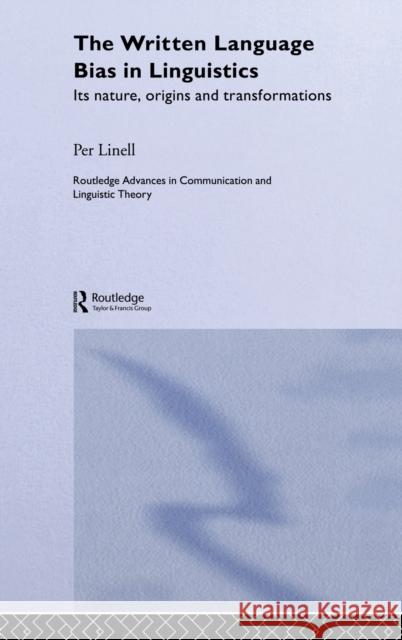The Written Language Bias in Linguistics: Its Nature, Origins and Transformations » książka
The Written Language Bias in Linguistics: Its Nature, Origins and Transformations
ISBN-13: 9780415349925 / Angielski / Twarda / 2005 / 268 str.
The Written Language Bias in Linguistics: Its Nature, Origins and Transformations
ISBN-13: 9780415349925 / Angielski / Twarda / 2005 / 268 str.
(netto: 720,05 VAT: 5%)
Najniższa cena z 30 dni: 654,86
ok. 16-18 dni roboczych.
Darmowa dostawa!
There is a 'written language bias' in the language sciences, particularly in linguistics. Within the discipline of linguistics, models and theories of language have been developed that are strongly dependent on long-time traditions of dealing with writing and written language. This legacy is still alive in modern, mainstream theoretical linguistics. As a consequence a paradox arises: there is an almost unanimous agreement on the absolute primacy of spoken language, yet language is explored from theoretical and methodological points of departure that are ultimately derived from concerns with cultivating, standardising and teaching forms of written language.
The author substantiates claims about the 'written language bias' using arguments and points from the theory and philosophy of language, phonology, grammer, lexicology, semantics, pragmatics, theory of text and discourse. Special attention is given to the notion of the single, unitary language, the distinction between language and speech, the view on language as a set of abstract objects and rules, the sentences as the fundamental unit of language, among other themes. Although the book focuses on mainstream linguistics, it also sketches an alternative theory of language which describes language use and talk-in-interaction in dialogical terms and as embodied, social action distributed in time.











